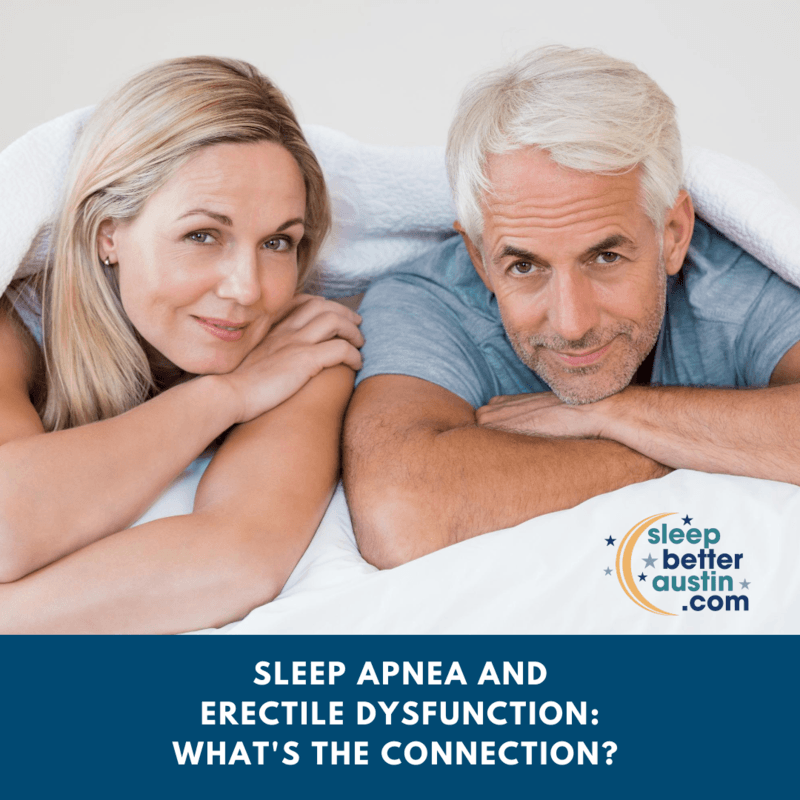
People with sleep apnea often stop breathing repeatedly during the night, causing them to snore loudly and have a restless night’s sleep.
While experts aren’t sure why, some research has shown an increased incidence of erectile dysfunction (ED) in men with sleep apnea because the disorder can affect your testosterone and oxygen levels.
And what better time to discuss ED and sleep apnea than now…because September is Sexual Health Month!
ED is when a man is unable to maintain an erection during intercourse. It’s estimated that about one in 10 adult males suffer from it on a long-term basis. ED can be caused by a number of things such as high blood pressure, diabetes, obesity, certain antidepressants and other medications, or a hormonal imbalance, according to the American Urological Association.
What is sleep apnea?
Sleep apnea is a disorder that occurs when breathing becomes very shallow because the airways are obstructed. It may cause breathing to cease entirely for short periods of time while sleeping, or at the other end of the spectrum, it could cause very heavy snoring.
According to Sleep Better Austin’s sleep expert Dr. Brandon Hedgecock one factor that could link the two conditions is low levels of testosterone. “Men who suffer from sleep apnea tend to have low testosterone, which is also an essential hormone for healthy sexual activity.”
In addition to low testosterone, other contributors to sleep apnea include obesity, a larger neck or tonsils, an excessive overbite, certain medications such as muscle relaxers, and alcohol consumption.
Dr. Brandon Hedgecock says the encouraging news is that once a man successfully treats the sleep apnea, testosterone levels, as well as sexual health and performance, can typically return to normal on their own.
How is sleep apnea treated?
Sleep apnea is often treated first by implementing a healthy sleep hygiene routine. Here are some top tips to treat sleep apnea:
- Create a wind-down routine at night (take a warm bath, read or listen to relaxing music)
- Engage in moderate exercise or physical activity each day
- Limit caffeine and alcohol intake before bed
Treatments for Sleep Apnea
If changing your sleep habits does not improve your sleep apnea symptoms, a CPAP machine or fitted oral appliance may be best. Sleep Better Austin’s innovative Oral Appliance Therapy is one that has consistently proven successful when other treatments, including CPAP machines, have failed.
To learn more about sleep apnea treatment and how it can improve sleep quality, please contact us to schedule a complimentary appointment with one of our experts in dental sleep medicine.

 SLEEP ASSESSMENT
SLEEP ASSESSMENT